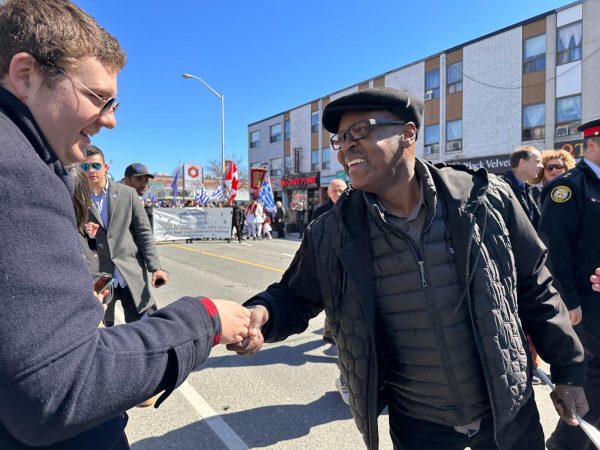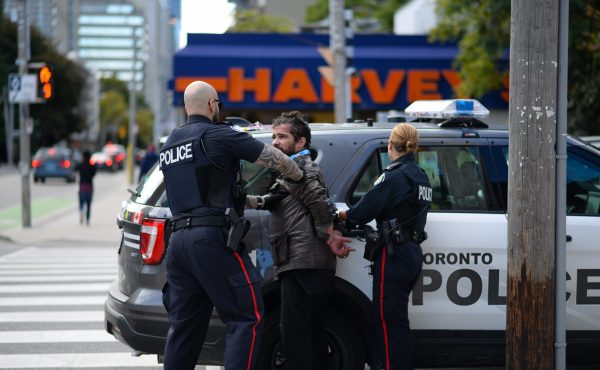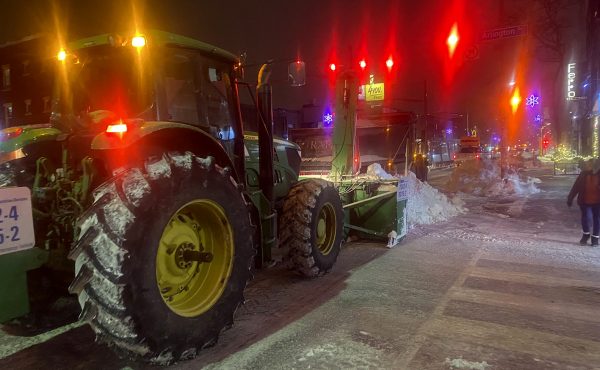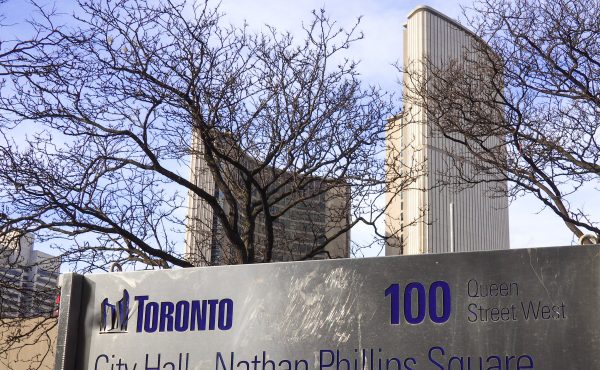Toronto’s mayoral election is historic. So many candidates and so many political affiliations, identities, and experiences. Voting is going to be a difficult decision for many. One metric I will be using to narrow my choice is the question of consistency versus performativity. Which candidate(s) has demonstrated a commitment to solving the serious issues facing the city right now – crime, affordability, accessibility, and livability? And which candidate(s) have a long track record of flip flopping and performative allyship?
So far, seven Black candidates from across the political spectrum have added their name to the ballot for mayor. They include former Liberal MP Celina Caesar-Chavannes, Liberal MPP for Scarborough-Guildwood Mitzie Hunter, policy analyst Chloe Brown (who placed third in last year’s mayoral election), former city councillor Rob Davis, barrister and solicitor Rocco Achampong, and Knia Singh, best known for representing Regis Korchinski-Paquet’s family following her tragic death after an interaction with Toronto Police in 2020. Then, of course, there is former police chief Mark Saunders.
Saunders is the one candidate on this list who makes me, and many others, pause (though Achampong and Davis have announced platforms that make little reference to existing social issues, such as cost of living and access to transit, and instead are focused on more police and/or why we shouldn’t rename Dundas Street). Saunders, however, has a long and documented track record of duplicitous behaviour as it relates to the Black community.
When he left his role as Toronto police chief (2015 to 2020), in an article for Spacing in 2020, I talked about the fact that, as compared to police chiefs before him, he was not aggressive and he often tried to find a middle ground – traits that I describe in my book, Uncle: Race, Nostalgia, and the Politics of Loyalty, as characteristics typical of ‘Uncle Tom.’ In a feature for Xtra, Toronto’s LGBTQ2S+ news and culture outlet, Sandy Hudson, co-founder of Black Lives Matter (BLM) Canada, agreed, arguing that the city “cannot afford Saunders in another position of power.”
“This is a man whose callous refusal to engage with the concerns of community members while chief resulted in him being run out of office. The problems are only larger and more complex at the mayoral level,” Hudson said, adding “This is the man who fought vigorously – and lost – for police to continue racial profiling through carding.” While Saunders did step down due to health concerns, it’s easy to understand why some members of the Black community feel he left for other reasons.
Saunders’ campaign comes on the heels of a failed run as a Progressive Conservative candidate in last year’s provincial election. So far, his single issue focus on policing is not only scary, but also stands in direct opposition to his actions in 2017, when he sided with members of Toronto’s Black LGBTQ community to remove Toronto police from Pride parade festivities. Then, during 2020’s “global anti-Black social movement,” he was in the streets with the city’s Black activists. In case people forget, just before he stepped down as police chief, he took a knee alongside a group of protesters rallying against anti-Black racism at Yonge and College streets, then tweeted a photo of himself with the statement, “We see you and we are listening. The Toronto Police fully supports peaceful and safe protests this weekend and always. We have to all stay in this together to make change.”
To be fair, Saunders was not the only Canadian politician guilty of performative allyship. Prime Minister Justin Trudeau also took a symbolic knee at a Black Lives Matter demonstration in Ottawa in 2020. And later that year, he promised police reform, stating in a September 2020 Throne Speech that “the government will take steps to ensure that the strong hand of criminal justice is used where it is needed to keep people safe, but not where it would be discriminatory or counterproductive.” However, he stopped short of “defunding the police,” a term that energized activists in 2020.
Initially, city councils across the country expressed a genuine desire to at least engage in discussions about reducing police funding. But when it came down to actually following through, these same city councils leaned into fear, increasing police budgets as a way to ‘keep cities safe.’
In 2021, Toronto-St. Paul councillor and current mayoral candidate Josh Matlow put forth a motion, backed by then Toronto Centre councillor Kristyn Wong-Tam, calling for the police budget to be cut by at least 10% with a reallocation of the savings to community services. The motion was defeated with only eight councillors voting yes, and 16 voting no. According to a mapping of this vote on TVO Today, the majority of the no votes came from parts of the city with the highest Black populations (Scarborough and Etobicoke North).
Even though policing is too often framed as a “Black issue,” the Black community is not a monolith on the issue. There are some folks who just believe that policing makes cities safer while others adamantly believe that policing is a form of state-sanctioned surveillance that has, both historically and today, harmed Black lives, as author Robyn Maynard demonstrates in Policing Black Lives.
My issue with “tough on crime” platforms is that they ignore conversations with communities, and disregard real understandings of the issues that cause crime in the first place, such as poverty, racism, mental illness, and homelessness, as both the Globe and Mail and Toronto Star have reported in recent months.
If there is an example that Torontonians should take their cues from, it is our American sister city Chicago. Earlier this month, Brandon Johnson, a Democratic, progressive county commissioner backed by the city’s teachers union, became that city’s mayor-elect after voters rejected “tough on crime” mayor, Lori Lightfoot. In 2019, Lightfoot was elected as Chicago’s first Black female mayor, and also the city’s first LGBTQ mayor.
Her mayoralty, however, was marred by the COVID-19 pandemic, a wave of protests in the wake of George Floyd, and an ever-increasing problem with violence, especially gun violence. In 2020, amid the anti-police protests, Lightfoot pledged to cut $80 million from Chicago’s police budget, according to InjusticeWatch. But then, in 2021, she publicly pleaded for federal law enforcement agents to come to Chicago to help crack down on illegal guns. In one Lightfoot campaign ad, she also made it clear that as mayor, she would “put more police on the streets.”
With 600 homicides and 2,600 shootings in 2022 alone, according to Chicago Police Department data, it’s totally understandable why a mayor would take the “tough on crime” approach.
However, Johnson ran on a platform that included some investments in policing, but he leaned into “defunding the police,” and has promised an holistic approach to violence reduction that includes investments in youth employment, mental health services, and affordable housing.
Chicago has one of the highest crime rates in America, and yet Johnson’s campaign focused on the root causes of crime rather than more policing, and he still won. What that outcome means is that what matters most is not appearing to be “tough on crime,” but rather spelling out values and a vision for solving the deeply systematic issues of violence plaguing cities across North America.
America has a gun crisis that is very different to the current problems in Toronto. Still, voters need to ask themselves which candidates have a platform that tackles the issue of crime and violence from a holistic point of view. If such an approach can elect a progressive mayor in Chicago, why can’t it work here?
I do not know whom I will vote for in this large pool of candidates, but one thing I know for sure is that any candidate who said one thing in 2020 and is saying something polar opposite today is unfit to be mayor. We just can’t afford good speeches anymore. We need community-based solutions that de-centre policing and instead take a holistic approach to the systemic issues that haven’t been addressed head on for decades.
Cheryl Thompson is an Associate Professor in Performance at The Creative School, Toronto Metropolitan University. Her latest book Uncle: Race, Nostalgia and the Politics of Loyalty (Coach House Books) was published in 2021. Follow Cheryl on Twitter at @DrCherylT.





2 comments
I would like to speak with Mark Saunders I have the answer that will make him our next Mayor. He knows me please ask him to contact me it’s important
I for one, would like to see more uniformed sunshine list police officers filling pot holes and helping out with domestic duties in shelters for the under housed. I think it would class the place up. /s